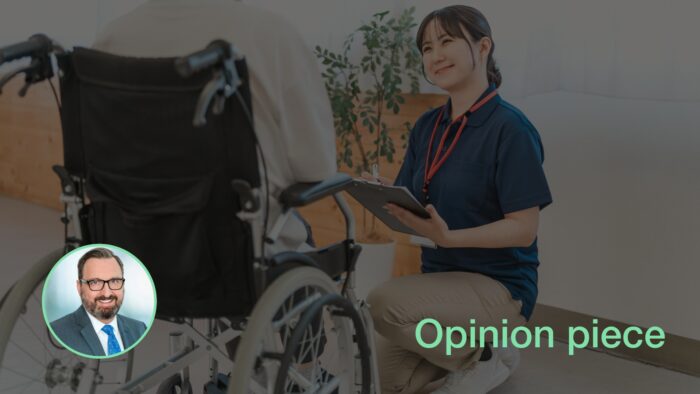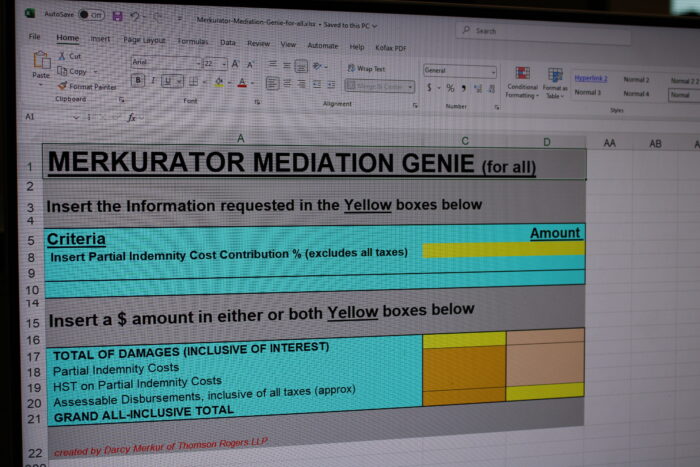Lessons on Dealing With Trauma From One Who Knows
Author(s):
October 29, 2019

“Lessons on Dealing With Trauma From One Who Knows” was originally published on Monday, October 21, 2019 by LexisNexis Canada at The Lawyer’s Daily.
In 2017, I was halfway through law school and was featured in the Globe and Mail’s Unfounded series about how police forces across Canada report on sexual assault. I had not spoken publicly about my assault, and many people in my life didn’t know about it. But I felt that it was important to share my story. I didn’t want what had happened to me to continue happening to others and I felt that Unfounded had the potential to make a change.
I was nervous to share such a personal and intimate story with the public. I was also worried that if I shared my story using my full name, I wouldn’t get hired after law school. Specifically, I was worried that I wouldn’t get hired in the competitive Toronto legal market — which is where I have always wanted to practise.
In hindsight, now that I’m a lawyer working in downtown Toronto, this seems sort of silly. But these worries were why I chose to share my story as just “Ava”; no last name, no mention of my law school, no identifying picture. I was worried that being an advocate for this cause would hurt my future career as an advocate.
A few months after Unfounded was published, I decided to pursue legal action against the police service that investigated my report. I am one of three plaintiffs alleging systemic discrimination under s. 15 of the Charter. I chose to use my full name in the Statement of Claim despite knowing that there would be media attention surrounding the lawsuit, due to the novelty of it within the legal system and the Unfounded series.
The Toronto articling recruitment started shortly after the claim was issued. I worried that when firms Googled me they would see that I was a plaintiff in the lawsuit. Ultimately, I decided that my experience as a plaintiff and advocate gave me a unique quality and perspective that I could apply to a litigation practice. Besides, I told myself, do I even want to work at a firm that won’t hire me because of my advocacy?
I articled at Thomson Rogers Lawyers and returned as an associate after being called to the bar. During my articles, and now in my practice, I frequently interact with clients who have experienced some sort of trauma — physical, emotional, psychological. My clients can be victims of motor vehicle accidents and they can be survivors of sexual assault. I have the unique opportunity to sit on both sides of the “table” as both a plaintiff lawyer representing those who have experienced trauma, and as a plaintiff who has experienced trauma herself. As my practice evolves, I hope to use my experience as a plaintiff to inform my practice as a plaintiff lawyer — and I hope to inform yours. The following are some rules of thumb that I have picked up along the way.
Recognize trauma in the first place.
As lawyers, we are trained to look at things objectively and logically. But sometimes trauma isn’t logical and from an objective standpoint it doesn’t really make sense. Your clients might know that their trauma doesn’t make sense, which makes talking about it even more frustrating for them.
Try not to minimize trauma – acknowledge it.
Some clients may have intense shame surrounding the event and it may be a big deal to them that they are telling you about it. Be empathetic and patient. If the client wants a loved one there as support, or wants to take breaks, let them. It will likely help them stay grounded and be able to better tell you their story.
Timelines
It is important to be upfront about the general timelines associated with the litigation process. By virtue of my schooling and work experience in litigation I was aware of how long my lawsuit may take to resolve (it’s still ongoing). Some days it feels as though it has been going on forever, but I am grateful that I made the informed decision to pursue litigation even though (as my mentor puts it) “the wheels of justice turn slowly.” However, some clients simply want to put their trauma behind them and litigation may not be right for them.
Likewise, the litigation process can sometimes act as “salt on the wound.” The discovery process, for example, will feel invasive and perhaps to some, unnecessary or accusatory. It is important to accurately describe the steps of litigation to your client — don’t sugar coat anything. And if you have a feeling that a document may contain upsetting information, a simple heads up to your client can help. Litigation can get ugly and properly preparing your client will make things easier for everyone involved.
A “simple” ask for you may be an overwhelming task for your client. As a plaintiff, I put off requesting my hospital records for months — something that would frustrate me as a lawyer. As a plaintiff, it felt scary and overwhelming. Instead of shaming me for having not provided them yet, my lawyers sent a gentle (yet firm) reminder. I really appreciated this.
Thoughtful gestures will mean a lot to your client. Something as small as handing a client a tissue if they get teary shows that you are acknowledging their emotions. Similarly, meeting in a quiet, private space can make a client feel like they are in a “safe space” to disclose sensitive information. If your practice allows for it, consider fostering relationships with health care professionals who are experienced in dealing with patients who have suffered trauma. That way you can involve these professionals in the care of your clients if needed.
Secondary Trauma
Lastly, learn the signs of secondary trauma and be sure to take breaks when you’re feeling burnt out. Recharging and stepping away from that difficult file will allow you to return to it more clearheaded and empathetic — something your clients and co-workers will appreciate.
While my journeys as both a plaintiff and a lawyer are far from over, they will no doubt continue to inform each other. I’m fortunate to be at Thomson Rogers, where I get the chance to use these methods almost daily. Even if your practice doesn’t present opportunities to implement trauma-informed lawyering, chances are that understanding trauma will prove useful in your life.
Our legal system needs lawyers who understand trauma, and I encourage you to be one of them.
Ava N. Williams is a personal injury lawyer and associate at Thomson Rogers. Her practice is devoted to representing Plaintiffs in personal injury litigation and she is committed to advocacy both in and out of the courtroom. Ava can be reached at 416-868-3130 or by EMAIL.
Share this





